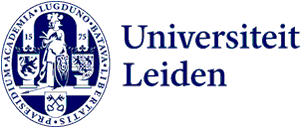
Young people’s experience of mental health problems help improve medical training and practice
LUMC Curium and the Dutch National Youth Council (NJR) have been working together for over five years on integrating young people’s lived experiences of mental health problems in medical research and training. The aim is to broaden doctors' and researchers’ perspectives and improve the care offered.
What shape does this collaboration take?
Robert Vermeiren, Professor and Head of Psychiatry at the LUMC: ‘We want to improve the care offered by involving those who will receive that care. Obviously, our work is about disorders and diseases but it is also about communication: how do get certain information across? And what does the person you want to help think about that? We are involving experts by experience to broaden the care we provide and the NJRiis helping us.’
Marloes Lauf, project leader at NJR: ‘We have a panel of around 45 young people with lived experience of young people’s mental health services. If organisations want to include the perspective of an expert by experience in a lecture, in their teaching or when developing and conducting research, for example, they can apply to us. We discuss the idea with them and ask the young people if any of them would like to participate. Safety is hugely important for the young people. So we always meet them first to consider the organisation’s request in detail and the form the young people want their participation to take.’
How does the collaboration translate to the practice?
Vermeiren: ‘We want to improve healthcare and make it more human − preferably as soon as possible. We are doing so in various ways, in the Child Psychiatry minor in the Medicine programme, for instance. In this ten-week minor, students have to develop a research proposal for a real-life problem. This is based on both our scientific knowledge and the needs of the people that it should help. A panel of NJR experts by experience listen to student pitches about their research and offer their thoughts.
‘Unfortunately, many scientific studies still prove unsuitable because they lack input from young people. The research then fails or the results prove impracticable. We want to prevent that from happening in not only our teaching but also the LUMC Curium research group. We try to involve experts by experience throughout the entire scientific process. We ask whether and to what extent the research meets their needs. And how that can be improved. We do this with other regional partners too, such as GGZ Rivierduinen and civil society partners.’
The Medicine programme also has a seminar with experts by experience. Can you say a bit more about that?
Vermeiren: ‘We have the “adolescent” seminar, where we discuss the topic of suicidality in small groups. We explain more about this, from not just the professional point of view but also that of the young people present from the NJR. It is very powerful and offers a different perspective. It’s a shame that there are still examples in healthcare where that other perspective is not visible enough. That’s what makes this so important.’
Lauf: ‘What I really like about this setup is that the expert by experience and lecturer have equal roles. They teach together, which means the theoretical knowledge and the young person’s practical experience are on an equal footing. You focus on taboos and stigmas and you create awareness. What is your role alongside that of doctor? It’s also about talking as one person to another.’
Vermeiren: ‘We find that the lessons also allow students to talk more about mental health issues. Some students also struggle with their mental health or know other people who do. It helps get the conversation going. And I hope we can do more to encourage this open conversation at the LUMC.’
How do the experts by experience find it to share their stories?
Lauf: ‘It has a huge impact: they get to share their experiences. One of them said, “The project gives me hope, meaning and connection because I know that aspects of my experience can inspire others and that I can help improve the healthcare provided.” That’s wonderful, especially because at times some of the young people could no longer see perspectives for the future. So it is really valuable that this helps them do so.’
Vermeiren: ‘When I started at the LUMC, 17 years ago, it was uncommon for experts by experience to offer input. There were feelings of shame and a great stigma was attached to it. Luckily that has changed. Now many young people want to share their stories. It is incredibly valuable for all of our teaching but beyond that too. Nearly all doctors come into contact with psychiatry. I hope we can inspire others to focus on the patient experience alongside the scientific and professional knowledge.’
If you have suicidal thoughts, contact 0800-0133 or chat on 113.nl. The service is anonymous and available (also in English) 24/7.
Foto: Unsplash
